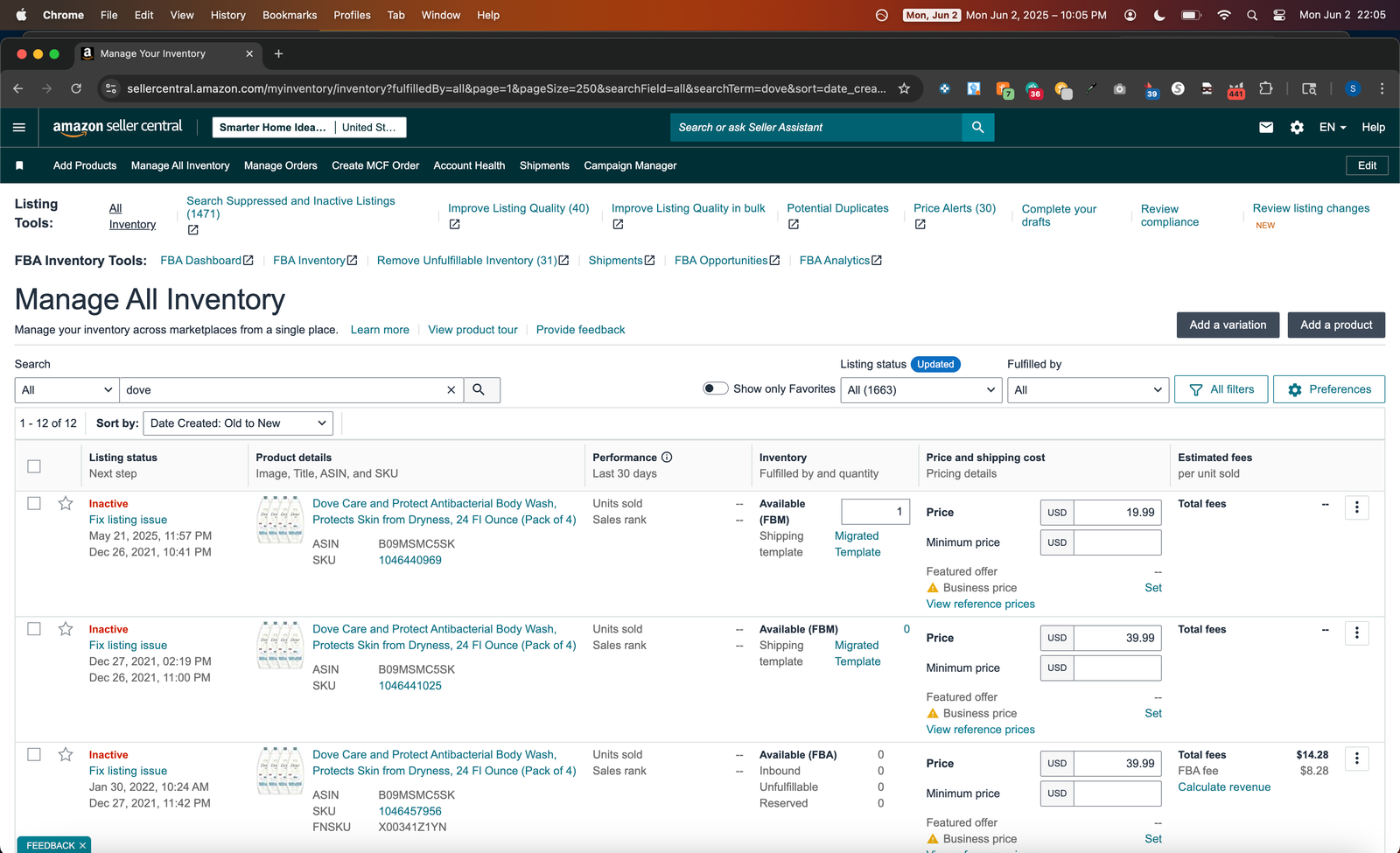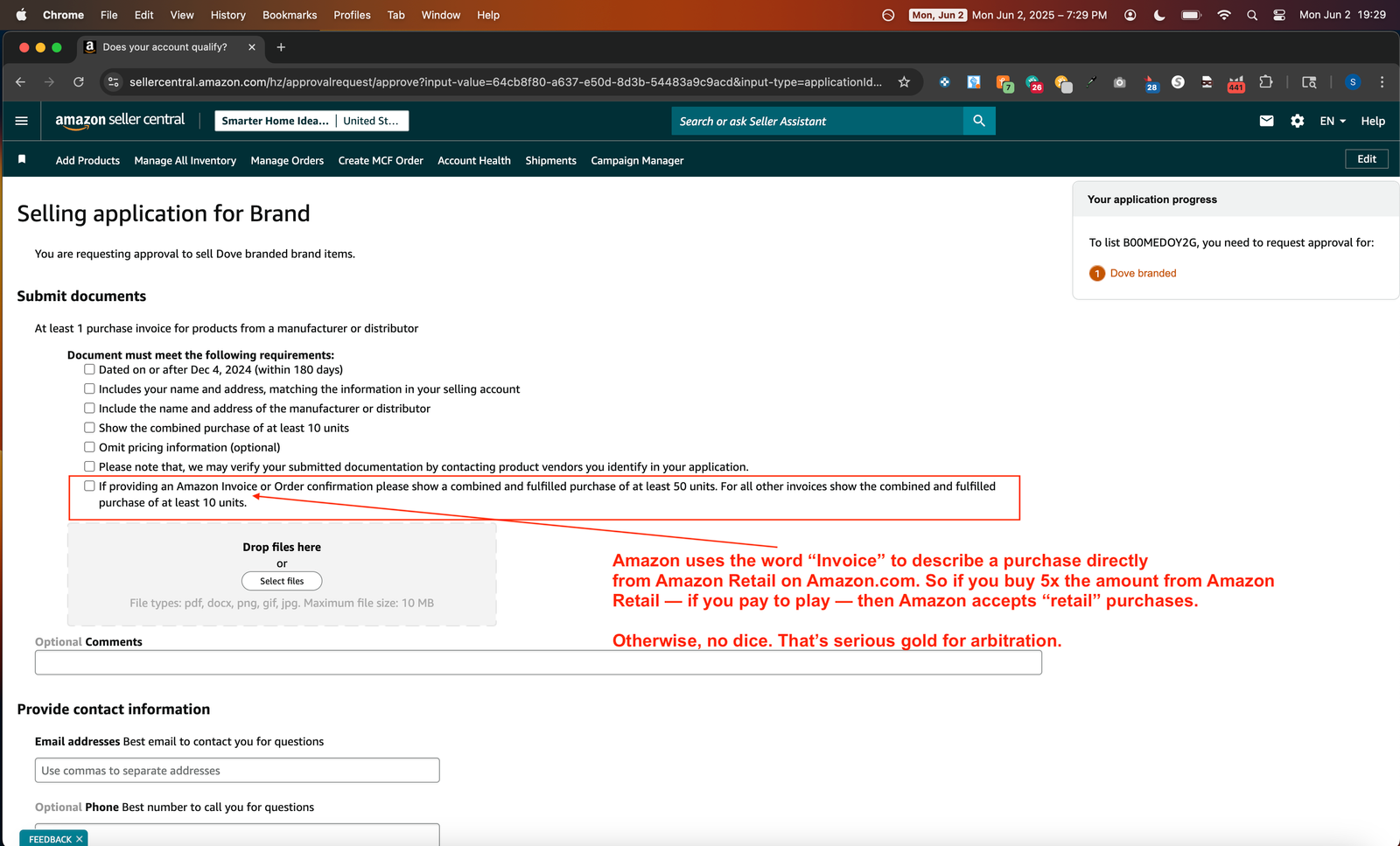📄 Case Entry: Documentation Accepted for Violation Removal, Rejected for Brand Approval
Summary:
The same documentation Amazon has repeatedly accepted to remove intellectual property, counterfeit, and trademark violation claims is now being rejected when submitted for brand approval. This includes Ollie’s sales orders, Costco receipts, and other supply chain evidence. Amazon has previously confirmed the authenticity and sourcing of these products—yet denies approval under the same standards.
🧾 Key Facts:
- Sales orders and receipts used to reverse over a dozen IP complaints (e.g., Shine Armor, ZAP IT!, BioSteel, Better Bedder, Sharper Image)
- Amazon has formally removed violations using this same documentation, validating sourcing and authenticity
- Brand ungating rejections describe the documentation as “insufficient,” “incomplete,” or “unverifiable,” without offering specific clarifications
- No publicly disclosed policy change explains this difference in treatment
⚖️ Legal Position (For Arbitration):
Under the Business Solutions Agreement, Amazon has a duty to apply its policies fairly and in good faith. Accepting documentation for the purpose of reversing enforcement actions—while rejecting that same documentation for brand approvals—creates a conflict of standards and reflects inconsistent internal processes.
This disparity significantly disrupts legitimate commerce and may constitute tortious interference with business expectancy. Our position is that Amazon should adopt uniform documentation evaluation standards across all internal teams—particularly when the documentation has already been validated through prior reviews or appeals.
🔗 Dove Brand Evidence



Conclusion:
The divergence between enforcement and approval standards creates a material inconsistency that undermines seller trust and prevents lawful commerce. This matter will be included in arbitration filings, where a more uniform, transparent policy standard will be requested.
🔗 Gleem Brand Evidence
🔗 Evidence Archive (Coming Soon):
- 🗂️ PDF Sales Orders – Dungeons & Dragons, Aussie, Herbal Essences
- 📧 Email Acknowledgements – Violation removals confirming authenticity
- 📸 Screenshots – Brand approval denials citing “insufficient documentation”
💬 Commentary:
When documentation is accepted to verify product authenticity in enforcement disputes, but rejected in the brand approval workflow without explanation, it raises serious concerns about internal consistency and procedural fairness.
We believe this inconsistency contradicts the principles of good faith outlined in Amazon’s own Business Solutions Agreement, and constitutes a barrier to commerce that warrants arbitration review.